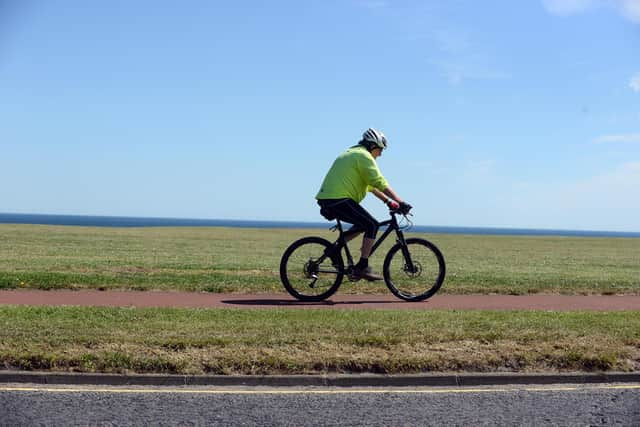Bid to make cycling and walking 'part of life in South Tyneside'
and live on Freeview channel 276
As part of a recommendation from the Department for Transport, local authorities have been encouraged to develop localised plans to improve active travel in their areas.
While not mandatory, Local Cycling and Walking Infrastructure Plans (LCWIPs) set out improvements around promoting sustainable transport and reducing reliance on private car journeys.
Advertisement
Hide AdAdvertisement
Hide AdThe formal plans also place councils in a better position to secure external funding for active travel schemes and future infrastructure projects.


At a cabinet meeting this week, South Tyneside Council’s political leaders endorsed a bespoke LCWIP for the borough.
The strategy follows feedback from the public and key stakeholders and falls against a backdrop of efforts to reduce carbon emissions in South Tyneside.
It also aims to create the environment where “cycling and walking becomes a part of everyday life.”
Advertisement
Hide AdAdvertisement
Hide AdThis includes plans to create new and improved connected strategic routes to residential areas in and outside of South Tyneside, and to provide traffic calming improvements and safe routes to schools.
Councillor Jim Foreman, cabinet member for housing and transport, introduced a report on the LCWIP at a cabinet meeting on Wednesday, December 1.
According to the document examined at the meeting, more than 500 submissions were collected as part of consultation work to develop the strategy.
As part of the work, 24 cycle routes and 16 walking routes have been assessed and prioritised across South Tyneside, with designs currently being undertaken to ensure safe networks for all.
Advertisement
Hide AdAdvertisement
Hide AdThe report prepared for cabinet this week also outlined the consequences of not developing a LCWIP.
It reads: “Without a recognised LCWIP in place there is the risk that active travel initiatives and schemes will be marginalised across the borough.
“It must be recognised that the LCWIP plays an important role in identifying the improvements / changes needed from a strategic and local perspective [and] this plan will help support future funding opportunities.
“The changes will support the council’s long term aspirations with respect to improved health, climate change and active travel initiatives.”